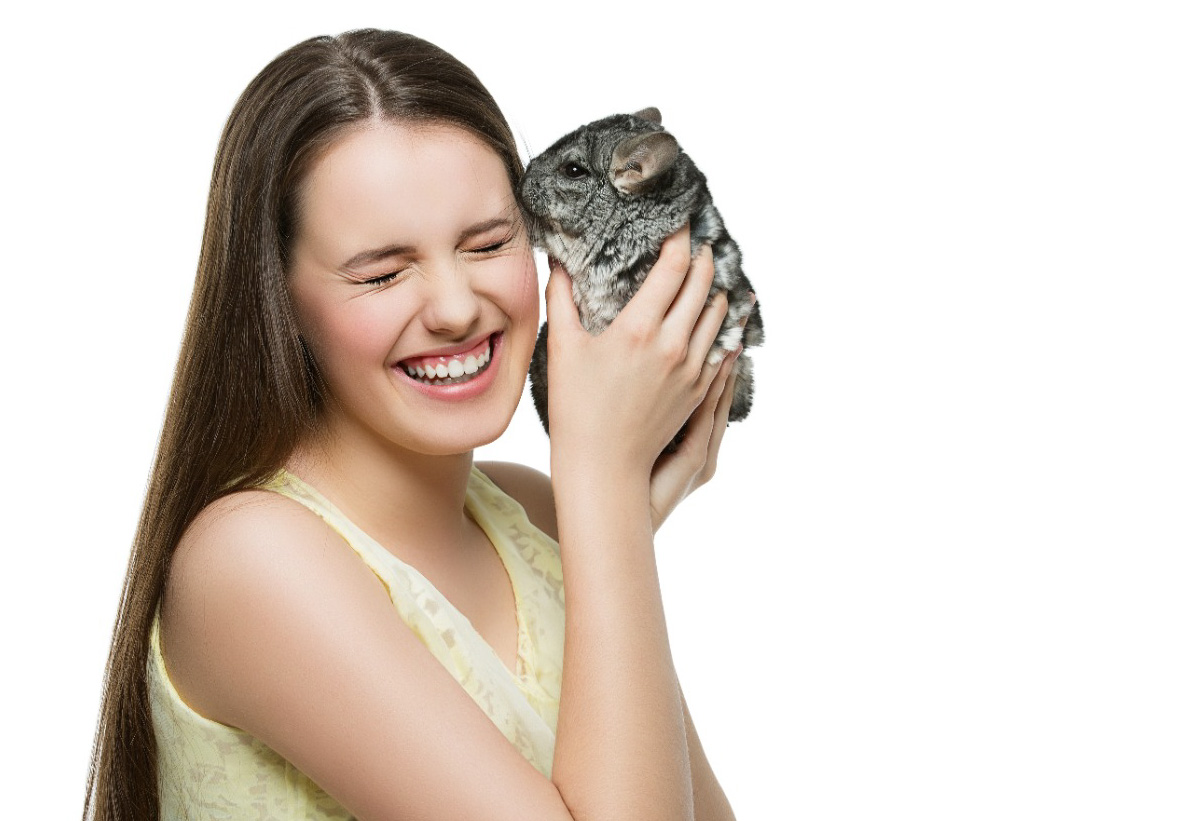JavaScript seems to be disabled in your browser. For the best experience on our site, be sure to turn on Javascript in your browser.
All you need to know about Chinchilla care

Chinchillas are small and furry pets that make wonderful companions for both children and adults. Originally from South America, they are medium-sized rodents who have been hunted to extinction and valued for their extremely soft and thick fur.
Regardless of where you buy your chinchilla, you have to ensure you ask questions on their behavioural issues, their previous owner, their current living condition at the pet shop, and their health history.
Now let's talk more about Chinchilla care.
Chinchilla Food
Feeding your chinchillas a good quality diet is essential for their health. Chinchillas are not designed for rich or fatty diets because such diets can easily cause them serious digestive upset.
Chinchillas are generally adapted to eating a diet of vegetation that is high in roughage.
While hay should be your pet's main food source, pellets can help supplement their meal, as long as they’re high-quality, hay-based pellets. Ensure you feed your chinchilla pellets supplemented with plenty of fresh grass hay.
You could also feed your Chinchilla any of the following Chinchilla Healthcare & Cleaning
Chinchilla Treats
Did you know that your chinchilla teeth never stop growing? Yes! Your chinchilla never stops growing its teeth. This is why it would need some activities to keep it active.
Raisins and sultanas are excellent treats for a chinchilla. They can be used as a reward when training your chinchilla and used to get them to carry out activities they don't want to carry on a normal day. However, you need to avoid feeding your chinchilla too many raisins to make sure they still see it as a treat rather than food.
Even though chinchillas enjoy a little slice of fresh vegetables, like carrots, ensure you do not give them too much because it may cause diarrhea.
You can also get other chinchilla treats here Chinchilla Treats
Chinchilla Toys
Your Chinchilla must have something to chew on as its teeth grow continuously and need to be worn down. Toys are also very important because they prevent boredom, provide exercise and mental stimulation, and help prevent your chinchilla from destroying your home.
Check out our cool Chinchilla toys here Chinchilla Toys
Chinchilla Habitat
Your Chinchilla requires exercise and as such, would benefit from having a large cage with different levels to jump around from and exercise their legs. Sleeping huts made of wood are also great for helping your little chinchilla feel safe.
- Ensure their cage is located in a well-lit area but never place the cage in direct sunlight or drafts.
- Ensure that their home is made with wood or hay and not plastic because chinchillas can chew on plastic.
- Finally, provide bedding at the base of the cage to absorb waste and provide nesting materials within the cage and nest boxes for your chinchillas to rest on.
Chinchilla Common Health Issues
Even though chinchillas can be prone to a few illnesses and chronic issues, some are more common. The most common issue in chinchillas' health is a dental disease and gastrointestinal stasis which leads to constipation.
The solution to this is to feed your chinchilla good quality hay-based pallet with a daily salad of heavy greens (except iceberg lettuce) and hay.
Chinchilla treats
Raisins and sultanas are ideal treats for chinchillas and can be used as a reward in training too. Avoid feeding your chinchilla too many though to make sure they still see raisins as a treat.
Some chinchillas also enjoy a little slice of fresh vegetables, like carrots, but take care not to give them too much because it may cause diarrhea. Peanuts and sunflower seeds should be avoided, as they are too high in fat.
Do not give them too many treats because this can cause an upset stomach.
Now that you know how to care for your Chinchilla, click here to check some Chinchilla must-haves Chinchilla










